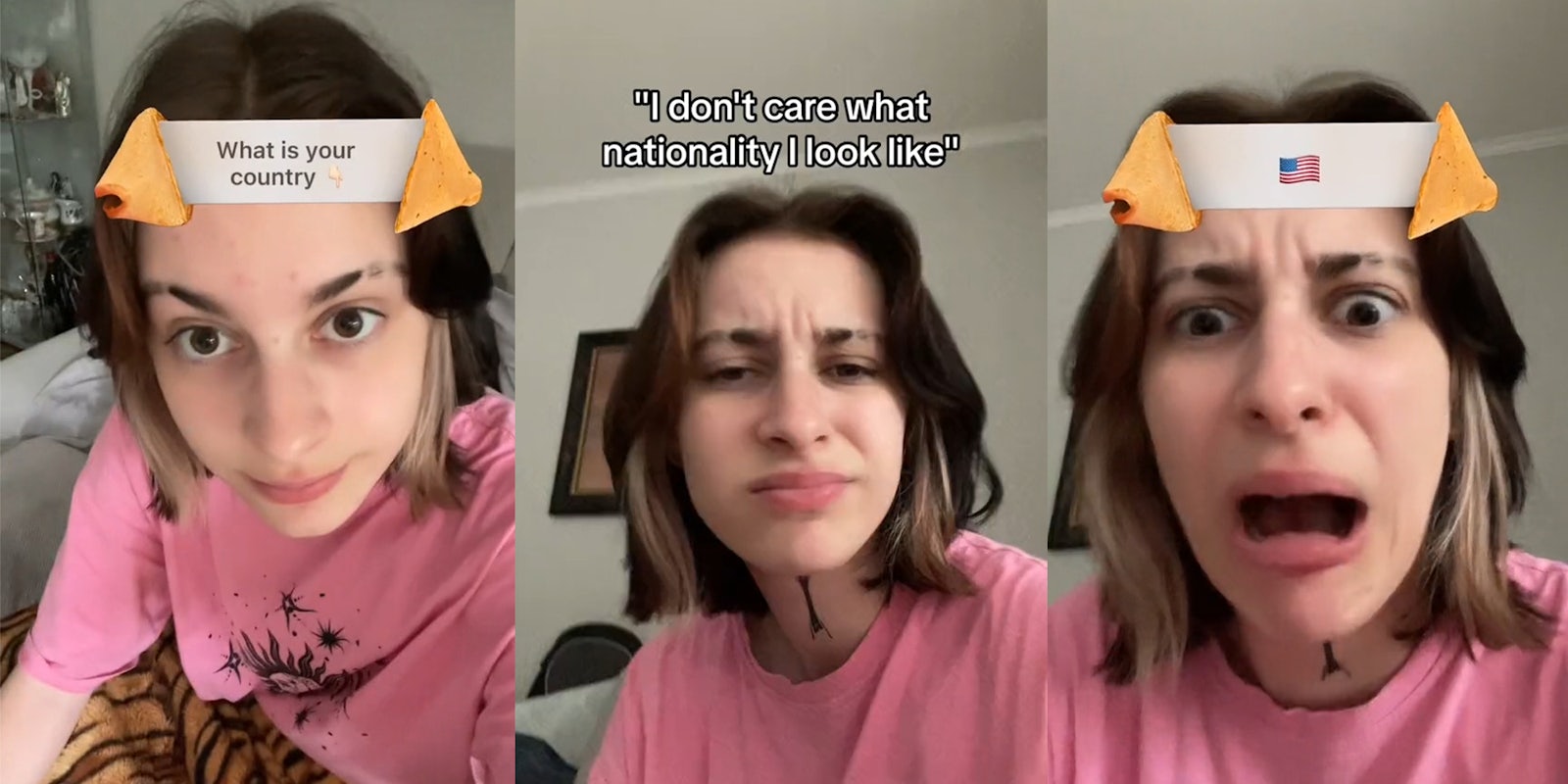Problematic on TikTok is a weekly column that unpacks the troubling trends that are emerging on the popular platform and runs on Tuesdays in the Daily Dot’s web_crawlr newsletter. If you want to get this column a day before we publish it, subscribe to web_crawlr, where you’ll get the daily scoop of internet culture delivered straight to your inbox.
Analysis
For the Fourth of July edition of my column, how could I not write about TikTok’s new “What is your country” filter that guesses your nationality based on how you look? The timing is just too perfect.
In a viral video posted last week, TikToker @katonara posted using the app’s new “What is your country” filter, which shuffles through different nation’s flags until it gets to the one it believes the user is. @katonara, who is American, got the American flag, and made a face showing disgust. At time of publication, her video had almost 6 million views.
If a filter that guesses your nationality sounds like a bad idea, that’s because it is: It feels similar to this back and forth between Parks and Recreation characters Leslie Knope, who is white, and Tom Haverford, who is Indian.
“Leslie Knope: You’re not from here, right?
Tom Haverford: No, I’m from South Carolina.
Leslie Knope: But you moved to South Carolina from where?
Tom Haverford: My mother’s uterus.
Leslie Knope: But you were conceived in Libya, right?
Tom Haverford: Wow. No. I was conceived in America. My parents are Indian.”
The idea that people who don’t “look American” (or, aren’t white) can’t possibly be from America is racist, and guessing someone’s heritage based on the way they look is definitely a prejudiced social faux pas that should be avoided.
And some creators of color have posted that the filter (or a similar one) has made assumptions about them based on their features and cultural markers. Ani (@yesyourabg), who wears a hijab, posted using the filter saying that she assumed that the filter would guess that she was from a Southwest Asian and North African country “just bc of [her] hijab.”
“And I was right,” Ani wrote in her TikTok’s caption. The filter guessed that she was Iranian, even though there are many muslims that don’t live in Southwest Asia or North Africa.
Ed Ma, who used a similar filter that was popular on TikTok last year, also had issues with it. When Ma, who is Asian, used the filter when his face was relaxed, the filter guessed he was from America. When he used it and squinted his eyes, the filter guessed that he was South Korean.
Why it matters
Assuming that everyone from a country (or of a nationality) looks alike is a racist concept. Americans can be of all different races and ethnicities, as is true of other countries as well.
Something as trivial as a TikTok filter shouldn’t be proliferating such problematic beliefs.


